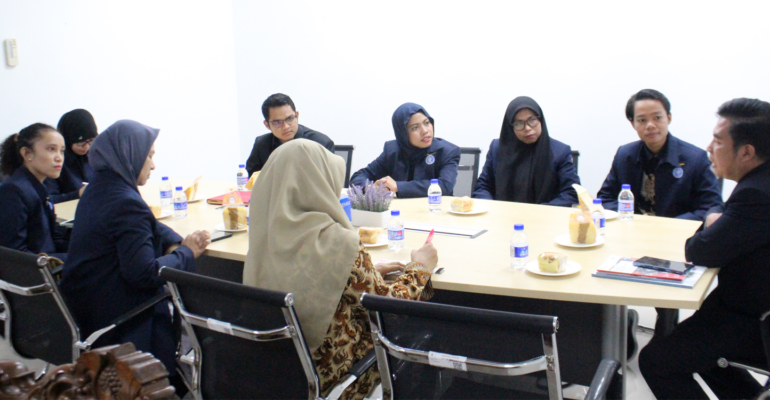Strengthening Cooperation, IPB University KMP Master Study Program Visits UCTC Universiti Putra Malaysia

To improve insight into development extension in Southeast Asian countries, the Master Program in Agricultural and Rural Development Communication (KMP), Department of Communication Science and Community Development, Faculty of Human Ecology (Fema) IPB University held a visit to Malaysia on 16-18/5.
The visit was attended by seven students and one lecturer, Dr Siti Amanah. The activity began with a visit to the Indonesian Embassy in Kuala Lumpur. Students obtained information about various very innovative educational programs for the Indonesian community in Malaysia.
They had the opportunity to visit the University Community Transformation Center Universiti Putra Malaysia (UCTC UPM), Selangor. Dr Siti Amanah also delivered a public lecture on Partnership in Agricultural Extension and Advisory Service in Indonesia. The public lecture was held in collaboration with University Community Transformation Center Universiti Putra Malaysia (UCT)C UPM, Fakulti Pertanian UPM, IPB University, supported by Malaysia Forum for Rural Advisory Services Network (MFRASN) and several institutions in Malaysia related to Research and Extension.
Dr Siti Amanah said that partnership, participation and multi-stakeholder synergy is one of the keys to success in achieving development extension goals. “Through a participatory approach, every development activity will grow from community initiatives,” she said.
Not only that, according to her, development agents or extension workers must also be able to build collaboration with various parties to be able to support the ideas given by the community. This is in line with what UCTC does in terms of community transformation.
“In transforming communities in various fields such as community development and agricultural development, UCTC uses a bottom-up approach by optimizing the physical and intellectual resources owned by UPM,” he explained.
In relation to this topic, a student representative of the KMP Master Program, Wulan Ali Rahmin had the opportunity to share his experience in assisting communities in Kendari, Southeast Sulawesi in developing local potential in a sustainable manner through the use of coconut fibers.
“The innovation that was developed started from an idea to deal with coconut fiber waste. So far, the coconut has only been taken from the coconut and the coconut fiber has not been utilized, even though the coconut fiber can be used as cocopot,” explained Wulan.
She said that the participatory processing of coconut fibers provides economic benefits and can reduce waste. It can be said that the utilization of coconut fiber into cocopot supports the achievement of sustainable development goals. (ksvt/Lp) (IAAS/HLF)



